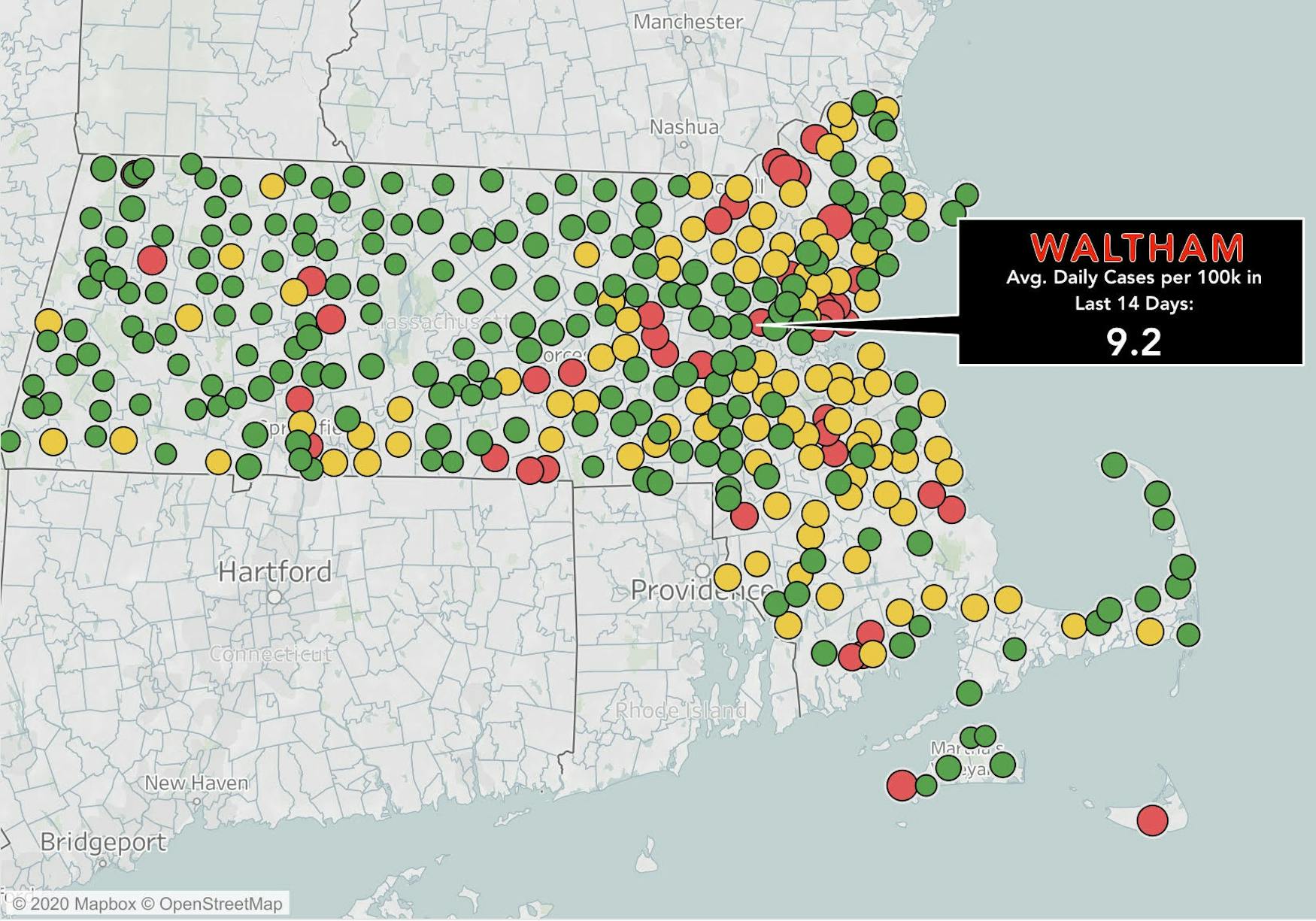As cases spike, remain vigilant with COVID-19 precautions
For the third week in a row, two Brandeis students tested positive for COVID-19. Two weeks ago, we saw our first faculty/staff positive case. Four students are currently in isolation, and 15 of their close contacts are in quarantine (as of press time). Massachusetts health officials announced that Waltham is now a red zone on Wednesday, meaning that we have more than eight cases per 100,000 population per day.
This board would like to thank everyone who has been doing their part to keep our campus as safe as possible. As cases rise in Waltham and the increasingly cold weather makes socializing outdoors more difficult, we must remember to take care of one another by following COVID-19 protocols. The semester got off to a good start in terms of COVID-19 safety, and we don’t want to undermine that.
This board wants to remind the Brandeis community that we are not all equally at risk. Staff members who frequently come into contact with students, such as dining workers, as well as anyone on campus who is immuno-compromised, face heightened danger. We ask that you keep these individuals in mind when making decisions about how you come into contact with others.
We also want to remind students of the risk that COVID-19 poses to their health. While being young lowers your risk of dying from the coronavirus, there are still serious dangers associated with the illness. “Long-haulers,” according to an article in The Atlantic, are COVID-19 patients who suffer from the illness for months on end, experiencing a range of symptoms during this time. Most long-haulers “were formerly fit and healthy,” the article says.
While we don’t know why cases have spiked in Waltham, we do know how we can mitigate the spread of COVID-19. Wearing masks, social distancing and keeping your hands clean continue to be methods proven to help protect yourself and others from spreading the coronavirus. Also, the University’s flu shot clinic will be open for three more days. Getting a flu shot is crucial this year, as health care facilities and workers are already overburdened with COVID-19 patients.
The purpose of this editorial is not to instill fear, but to provide the most accurate information we have about COVID-19 as of right now. At the beginning of this pandemic, we were told that young people were, for the most part, more likely to have milder cases of COVID-19. But as the months have dragged on, new data is showing that this is not necessarily the case. The current presidential administration has not been forthcoming about all of the risks connected to COVID-19, and that has had serious consequences. This board believes that we have a responsibility to remind our community of what is at stake.



Please note All comments are eligible for publication in The Justice.